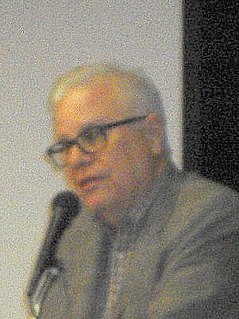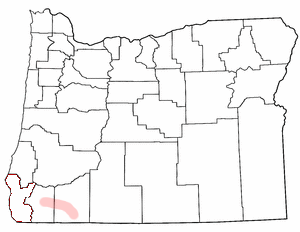
Louis Whitley Strieber is an American writer best known for his horror novels The Wolfen and The Hunger and for Communion, a non-fiction account of his alleged experiences with non-human entities. He has maintained a dual career of author of fiction and advocate of paranormal concepts through his best-selling non-fiction books, his Unknown Country web site, and his podcast, Dreamland.

Exodus is a historical novel by American novelist Leon Uris about the founding of the State of Israel beginning with a compressed retelling of the voyages of the 1947 immigration ship Exodus and describing the histories of the various main characters and the ties of their personal lives to the birth of the new Jewish state.

The history of Pomerania starts shortly before 1000 AD with ongoing conquests by newly arrived Polans rulers. Before that, the area was recorded nearly 2000 years ago as Germania, and in modern-day times Pomerania is split between Germany and Poland. The name Pomerania comes from the Slavic po more, which means Land at the Sea.

The Black Book of Communism: Crimes, Terror, Repression is a 1997 book by Stéphane Courtois, Andrzej Paczkowski, Nicolas Werth, Jean-Louis Margolin, and several other European academics documenting a history of political repression by Communist states, including genocides, extrajudicial executions, deportations, and deaths in labor camps and artificially created famines. The book was originally published in France as Le Livre noir du communisme: Crimes, terreur, répression by Éditions Robert Laffont. In the United States, it was published by Harvard University Press, with a foreword by Martin Malia. The German edition, published by Piper Verlag, includes a chapter written by Joachim Gauck. The introduction was written by Courtois. Historian François Furet was originally slated to write the introduction, but he died before being able to do so.

The Hunger is a 1983 supernatural horror film directed by Tony Scott, starring Catherine Deneuve, David Bowie, and Susan Sarandon. An international co-production of the United Kingdom and United States, the film is a loose adaptation of the 1981 novel of the same name by Whitley Strieber, with a screenplay by Ivan Davis and Michael Thomas. Its plot concerns a love triangle between a doctor who specializes in sleep and aging research (Sarandon) and a vampire couple. The film's special effects were handled by make-up effects artist Dick Smith.

Bad Ischl is a spa town in Austria. It lies in the southern part of Upper Austria, at the Traun River in the centre of the Salzkammergut region. The town consists of the Katastralgemeinden Ahorn, Bad Ischl, Haiden, Jainzen, Kaltenbach, Lauffen, Lindau, Pfandl, Perneck, Reiterndorf and Rettenbach. It is connected to the village of Strobl by the river Ischl, which drains from the Wolfgangsee, and to the Traunsee, into which the stream empties. It is home to the Kaiservilla, summer residence of Austro-Hungarian monarchs Emperor Franz Joseph I and Empress Elisabeth. In 2024, Bad Ischl will be the European Capital of Culture – the third city in Austria after Graz (2003) and Linz (2009).

Displaced persons camps in post–World War II Europe were established in Germany, Austria, and Italy, primarily for refugees from Eastern Europe and for the former inmates of the Nazi German concentration camps. A "displaced persons camp" is a temporary facility for displaced persons, whether refugees or internally displaced persons. Two years after the end of World War II in Europe, some 850,000 people lived in displaced persons camps across Europe, among them Armenians, Poles, Latvians, Lithuanians, Estonians, Yugoslavs, Jews, Greeks, Russians, Ukrainians, Hungarians and Czechoslovaks.

Sh'erit ha-Pletah is a Hebrew term for Jewish Holocaust survivors living in Displaced Persons (DP) camps, and the organisations they created to act on their behalf with the Allied authorities. These were active between 27 May 1945 and 1950-51, when the last DP camps closed.

Warday is a novel by Whitley Strieber and James Kunetka, first published in 1984. It is a fictional account of the authors travelling across the U.S. five years after a limited nuclear attack in order to assess how the nation has changed after the war. The novel takes the form of a first-person narrative research article and includes government documents, interviews with survivors and aid workers, and present-tense narration.

The Rogue River Wars were an armed conflict in 1855–1856 between the U.S. Army, local militias and volunteers, and the Native American tribes commonly grouped under the designation of Rogue River Indians, in the Rogue River Valley area of what today is southern Oregon. The conflict designation usually includes only the hostilities that took place during 1855–1856, but there had been numerous previous skirmishes, as early as the 1830s, between European-American settlers and the Native Americans, over territory and resources.
Jack Sullivan is an American literary scholar, professor, essayist, author, editor, musicologist, concert annotator, and short story writer. He is a scholar of the horror genre, Alfred Hitchcock, and the impact of American culture on European music.

Muselmann was a slang term used amongst Jewish prisoners of German Nazi concentration camps during the Holocaust to refer to those suffering from a combination of starvation and exhaustion, as well as those who were resigned to their impending death. The Muselmann prisoners exhibited severe emaciation and physical weakness, an apathetic listlessness regarding their own fate, and unresponsiveness to their surroundings owing to their barbaric treatment.
Hunger is a prolonged condition in which insufficient amounts of food are available.

Holocaust survivors are people who survived the Holocaust, defined as the persecution and attempted annihilation of the Jews by Nazi Germany and its allies before and during World War II in Europe and North Africa. There is no universally accepted definition of the term, and it has been applied variously to Jews who survived the war in German-occupied Europe or other Axis territories, as well as to those who fled to Allied and neutral countries before or during the war. In some cases, non-Jews who also experienced collective persecution under the Nazi regime are also considered Holocaust survivors. The definition has evolved over time.

Communion: A True Story is a book by American ufologist and horror author Whitley Strieber that was first published in February 1987. The book is based on the experiences of Whitley Strieber, who experiences "lost time" and terrifying flashbacks, which hypnosis undertaken by Budd Hopkins later links to an alleged encounter with aliens. Communion was a nonfiction best seller for six months in 1987.

Communion is a 1989 American science fiction horror film based on the book of the same name by Whitley Strieber in 1987.

Shane White is an American illustrator, comic book writer/artist and author from Massena, New York.
Herman Yablokoff, sometimes written Herman Yablokov, Herman Yablokow, etc., was a Belarusian-born Jewish American actor, singer, composer, poet, playwright, director and producer who became one of the biggest stars in Yiddish theatre.
James William Kunetka is an American writer best known for his science fiction novels Warday and Nature's End. He has also written non-fiction on the topic of the atomic age.














